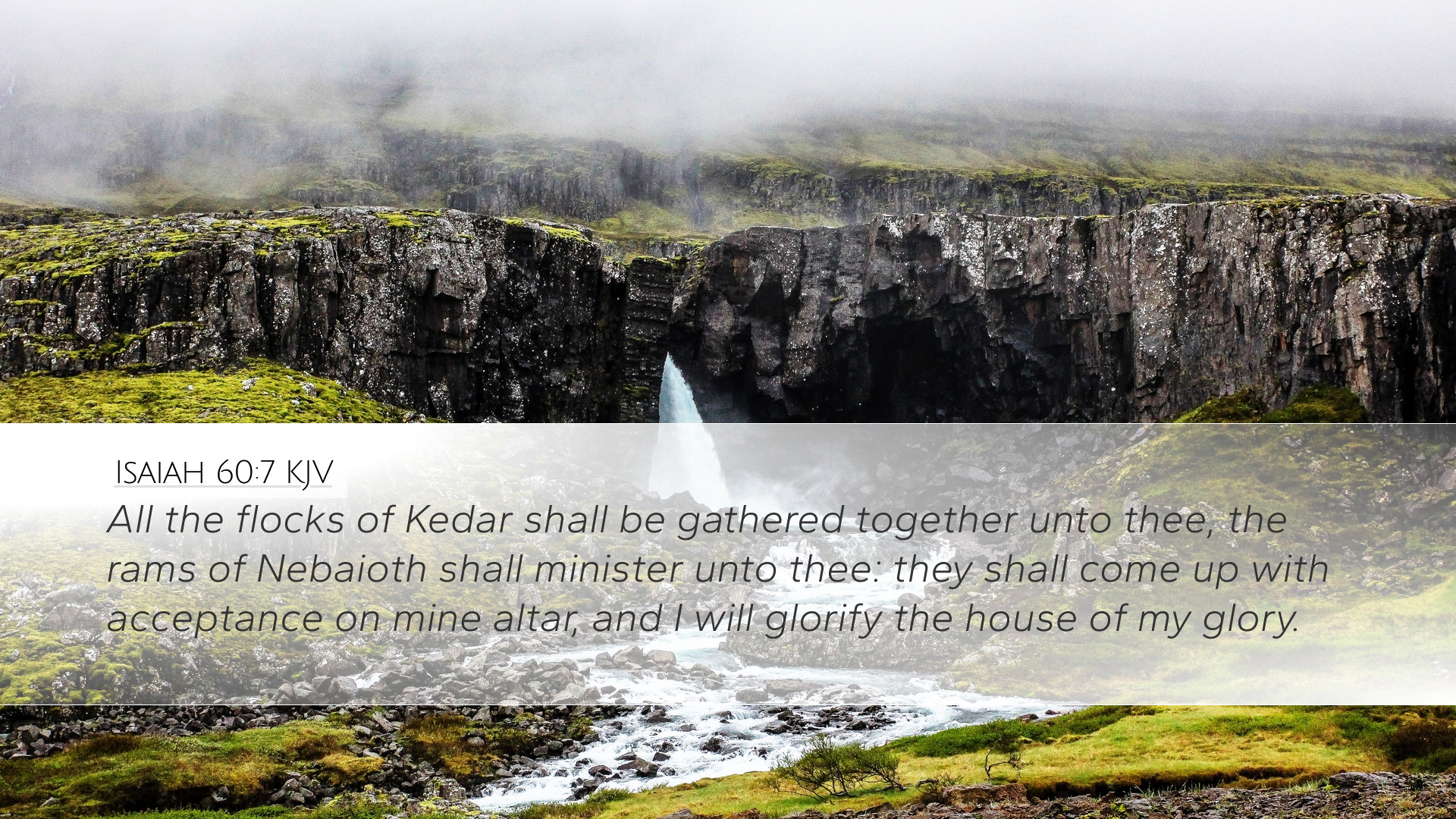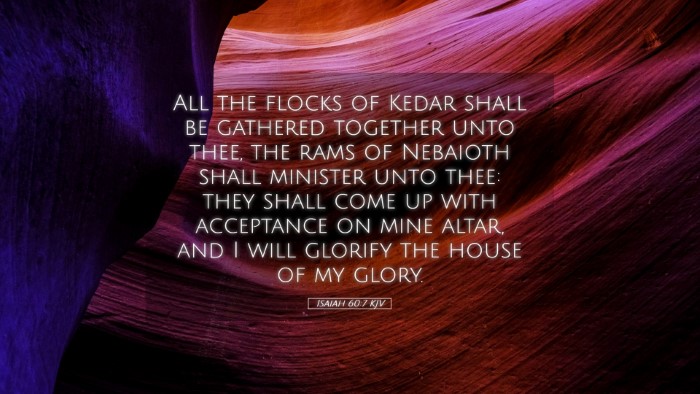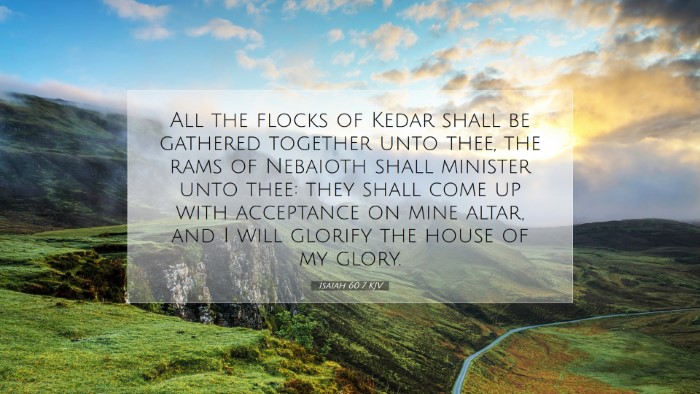Commentary on Isaiah 60:7
Verse Reference: Isaiah 60:7
Text of the Verse: “All the flocks of Kedar shall be gathered together unto thee, the rams of Nebaioth shall minister unto thee: they shall come up with acceptance on mine altar, and I will glorify the house of my glory.”
Introduction
Isaiah 60:7 stands as a pivotal promise in the prophetic vision of restoration for Israel. Through the lens of various commentators, the verse unveils rich theological insights about God's redemptive work, the significance of worship, and the eschatological hope for the nations.
The Gathering of Nations
Matthew Henry interprets this verse as a foretelling of the rich diversity that will be drawn to the worship of the true God. The reference to Kedar and Nebaioth, both descendants of Ishmael, symbolizes the inclusion of the Gentiles in God's plan for salvation. Henry points out that this gathering signifies a turning point where nations traditionally seen as outsiders are brought into the fold of God's people.
Symbolism of Kedar and Nebaioth
Albert Barnes elaborates that the flocks of Kedar are emblematic of the Arabian tribes who were known for their nomadic lifestyle, often seen as far removed from the covenant community of Israel. The rams of Nebaioth, who were prominently associated with the worship practices of the region, likewise indicate that even those outside the covenant can find a place in worship at God's altar. This aligns with the overarching theme of Isaiah, where God's intention is to reach all nations and draw them into a reconciled relationship.
Worship and Acceptance
The latter part of the verse speaks to the theme of acceptance upon the altar. Adam Clarke posits that this signifies the transformational nature of divine acceptance—where once there was enmity, there is now unity. The sacrificial imagery present in the act of coming to the altar underscores the fulfillment of spiritual needs through worship. The mention of ‘my glory’ affirms that worship ultimately serves to glorify God. Clarke suggests that God’s glory is both revealed and magnified when those from all backgrounds are welcomed in genuine adoration.
Theological Implications
This verse encapsulates several theological implications significant for both the original audience and contemporary readers. The themes of inclusion, redemption, and divine glory resonate deeply, calling scholars and pastors alike to reflect on the nature of God's kingdom.
- Inclusivity of God’s Kingdom: The gathering of the flocks symbolizes the breaking down of barriers. No longer are certain peoples excluded; instead, all whom God calls can find a place in His kingdom—demonstrating God's overarching plan of salvation through Christ.
- The Nature of Worship: The acceptance at the altar indicates that worship is not merely a ritualistic practice, but a heartfelt response to God's initiative. It beckons a consideration of how worship serves as both a communal and individual act that reflects one’s relationship with God.
- The Declaration of His Glory: The ultimate aim of the gathering and worship is to glorify God. As believers partake in worship, it is a testament to the transformative power of God’s grace. The verse beckons us to examine how our worship serves not just to fulfill obligations but to display God’s glory to the world.
Contemporary Application
For today's pastors and theologians, Isaiah 60:7 invites reflection on the nature of their ministry and the church's mission. The call to gather flocks presents a challenge to address issues of inclusion and diversity within worship settings. It emphasizes the role of the church as a beacon of hope for all, irrespective of their backgrounds.
Furthermore, as students and scholars study scripture, they are reminded of the historical context of Israel’s exile and the prophetic vision of restoration, which continues to hold relevance for modern believers. The repeated idea of God’s acceptance encourages a culture of grace and the need for outreach to those who feel marginalized or distant.
Conclusion
Isaiah 60:7 is a profound declaration of God’s promise of gathering and restoration. Through the insights offered by Matthew Henry, Albert Barnes, and Adam Clarke, we discern essential truths about God’s intention to include the nations, the significance of worship, and the call to glorify Him. This sacred text not only speaks to the past but beckons future generations to engage with God's enduring promise of redemption and glory.


